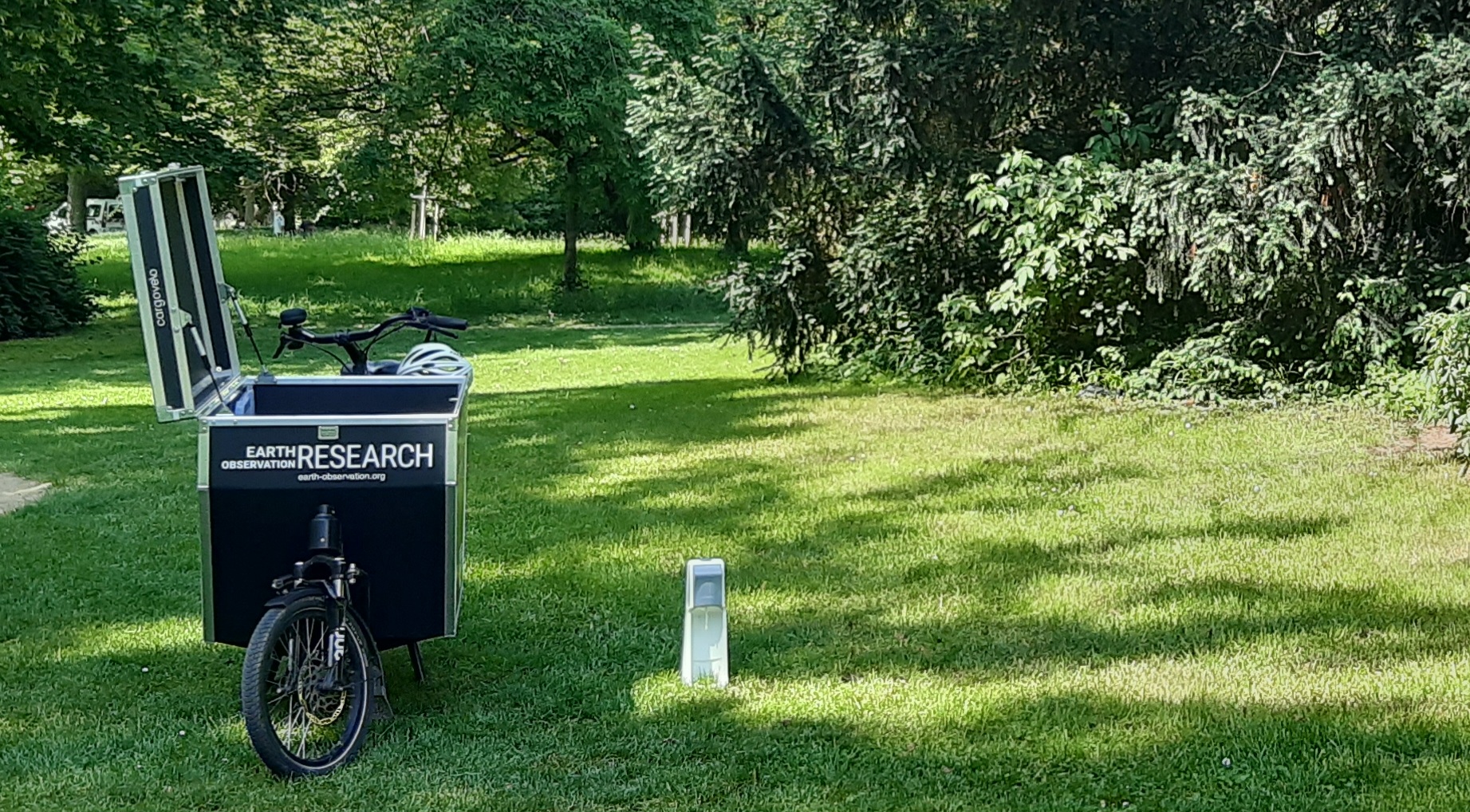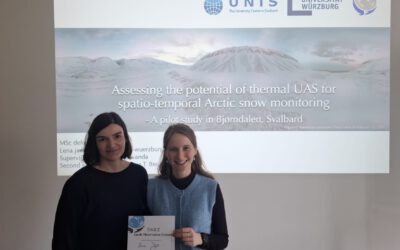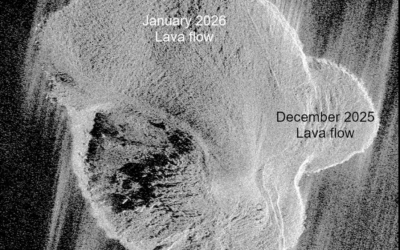From May to September, Karla Wenner, a PhD student at the Juniorprofessorship for Applied Biodiversity Science, will be sampling urban green spaces and semi-natural grasslands in Würzburg as part of the UrbanPArt project. Our cargo bikes support the research project with the most convenient way to transport a lot of sampling equipment to highly frequented urban green spaces.
The project focuses on the phenology of urban arthropod communities and the influence of green space management. At the same time, the importance of semi-natural grasslands at the edge of residential areas and the connectivity between green spaces for insects and spiders will be investigated. During the current surveys, ground- and vegetation-dwelling arthropods are collected by suction sampling. Starting in July, the sampling will be supported by an EAGLE Inno Lab candidate. The aim is to compare ecological field methods with automated remote sensing methods.
you may also like:
CHARM-EU workshop on earth observation
This week, the CHARM-EU teaching by the EORC staff continued. Over the past days, Florian Betz stayed at the University of Montpellier for a workshop with the water track master students of CHARM-EU. Topic of the workshop was the use of earth observation and...
Project EO4CAM Supports Municipal Adaptation to Heavy Rainfall Events
How can municipalities effectively reduce the impacts of increasingly frequent heavy rainfall events? This question brought together local and regional stakeholders on 24 February 2026 at Wartmannsroth town hall in the district of Bad Kissingen, Germany. Participants...
Guest talk at ENS Lyon
Our PI Florian Betz was invited to give a seminar talk about his research on remote sensing of river dynamics at the ENS Lyon in France. The seminar "Cafe Fluvial" is part of the doctoral training and research network "H2O Lyon" in which a number of research...
Successful MSc Defense by Lena Jäger
On 24 February 2026, EAGLE MSc student Lena Jäger successfully defended her Master’s thesis titled “Assessing the potential of thermal UAS for spatio-temporal Arctic snow monitoring – A pilot study in Bjørndalen, Svalbard.” Her work focused on one of the Arctic’s most...
Henri Debray Successfully Defends PhD on Global Urban Morphology
We are delighted to announce that our PhD student Henri Debray has successfully defended his doctoral thesis, “Characterizing Urban Morphology at a Global Scale: Geospatial Perspectives,”. Henri’s thesis builds on a series of his scientific publications investigating...
Dr. Simon Plank interviewed by NASA Earth Observatory
Home Reef, which is part of the Tonga Volcanic Arc, is the youngest volcanic island on Earth. Dr. Simon Plank, our habilitation candidate and guest lecturer from DLR, has been monitoring the evolution of Home Reef since the island emerged above sea level in September...









